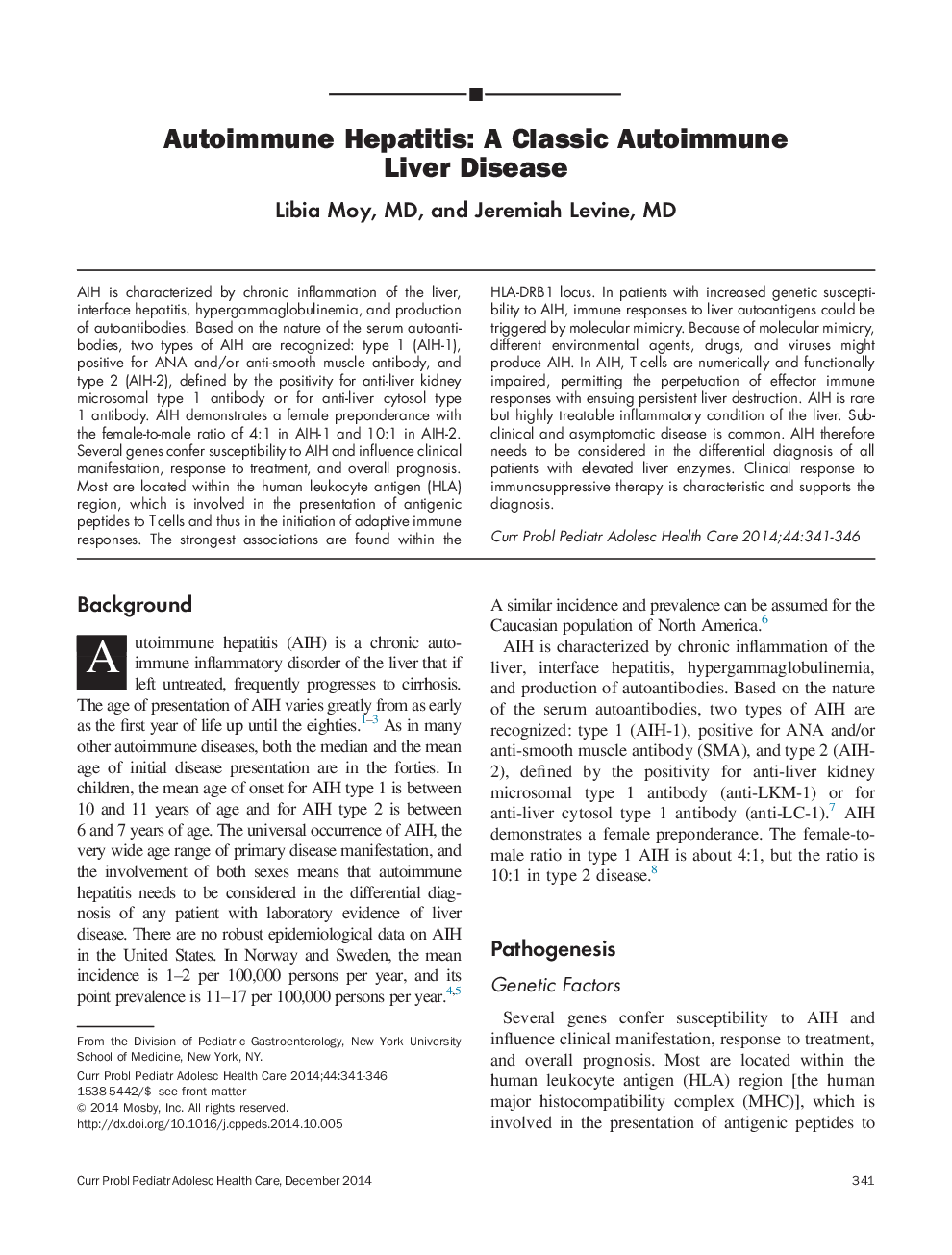| Article ID | Journal | Published Year | Pages | File Type |
|---|---|---|---|---|
| 4152522 | Current Problems in Pediatric and Adolescent Health Care | 2014 | 6 Pages |
AIH is characterized by chronic inflammation of the liver, interface hepatitis, hypergammaglobulinemia, and production of autoantibodies. Based on the nature of the serum autoantibodies, two types of AIH are recognized: type 1 (AIH-1), positive for ANA and/or anti-smooth muscle antibody, and type 2 (AIH-2), defined by the positivity for anti-liver kidney microsomal type 1 antibody or for anti-liver cytosol type 1 antibody. AIH demonstrates a female preponderance with the female-to-male ratio of 4:1 in AIH-1 and 10:1 in AIH-2. Several genes confer susceptibility to AIH and influence clinical manifestation, response to treatment, and overall prognosis. Most are located within the human leukocyte antigen (HLA) region, which is involved in the presentation of antigenic peptides to T cells and thus in the initiation of adaptive immune responses. The strongest associations are found within the HLA-DRB1 locus. In patients with increased genetic susceptibility to AIH, immune responses to liver autoantigens could be triggered by molecular mimicry. Because of molecular mimicry, different environmental agents, drugs, and viruses might produce AIH. In AIH, T cells are numerically and functionally impaired, permitting the perpetuation of effector immune responses with ensuing persistent liver destruction. AIH is rare but highly treatable inflammatory condition of the liver. Subclinical and asymptomatic disease is common. AIH therefore needs to be considered in the differential diagnosis of all patients with elevated liver enzymes. Clinical response to immunosuppressive therapy is characteristic and supports the diagnosis.
